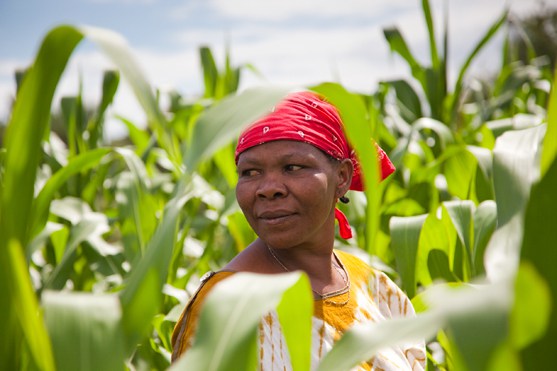Despite comprising the majority of Nigeria’s agricultural workforce, women farmers continue to face hurdles related to financing, training and land ownership.
Many own less than 15% of the land they cultivate. These disparities have slowed progress toward food security and rural development for decades.
A new policy for inclusion
In response, the Federal Government has reaffirmed its desire to close these gaps through the ongoing review of the National Gender Policy in Agriculture and Strategic Plan (2025-2030).
The review as part of national consultation seeks to make Nigeria’s agriculture system more inclusive by removing gendered barriers that limit women’s access to equal opportunities and resources with men.
Equipping women farmers across value chains
At the heart of this effort are innovations to empower women along all value chains. The reviewed policy improves equal access to credit and technology, including tailoring mechanisation training and programmes to many female farmers. The intervention will also include a focus on gender-responsive budgeting in agricultural programmes.
The development partners like ActionAid, GIZ and AGRA are assisting the process too, through zonal consultative forums where both women farmers and stakeholders can voice their needs as well as experiences.
This is a participative approach so that future initiatives are not only made for women but also with women.
The new policy framework is also expected to facilitate data-driven planning so that agricultural investment is guided by gender-disaggregated data.
By monitoring Nigeria’s overall food security and sustainability goals, the new plan would be in a position to enable rural women to transition from subsistence farming to agribusiness, increasing income levels while fostering community resilience.
Across Nigeria and beyond, several initiatives are showing what gender-responsive agricultural transformation can yield.
In Kaduna State, the Women Economic Empowerment, or WEE Project, sponsored by the Bayer Foundation and local partners, is equipping rural women farmers with improved seedlings, new equipment, and entry to additional markets.
The project will raise the earnings of over 35,000 women by a minimum of 30%, showing how investing in women can transform rural food systems and family livelihoods.
Similarly, the Ekiti State Agripreneurship Development Scheme empowers rural women through training in modern farming, livestock projects and agribusiness management so that they shift from subsistence to value-added production.
Why investing in women farmers works
These models at the state level demonstrate that if women are equally provided with access to tools, credit, and knowledge, production can be raised by as much as 20–30%, according to the Food and Agriculture Organization, or FAO.
Applying these evidence-based, inclusive strategies as part of the new National Gender Policy can sufficiently close previous gender gaps in the sector and also stimulate measurable progress in food security, employment, and rural development.
However, while these reforms are in the right direction, there remain underlying challenges.
The majority of women still do not have collateral to access loans, customary land inheritance systems still favour men, and rural communities have no awareness of existing government programmes.
Closing these gaps will require more than policy; it will demand enforcement, investment, and long-term grassroots mobilisation.
The new gender policy has the potential to revolutionise Nigeria’s rural future if implemented with vigour.
It could turn these women farmers into Nigeria’s main forces for sustainability, equity and productivity.
Summary not available at this time.






